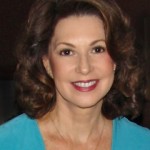By Sergio Ortega-Rodriguez
I was born an atheist, and so were you. It is our natural right as I claim in my unpublished book with the tentative title Born Atheist. In it I also describe the development of religious influence in people’s lives and how people can choose not to live under such influence. I do so by combining biographical as well as social observations. My parents, for instance, made every effort to instill in me the belief in god, but could not answer my questions because their religion did not encourage, much less allow it. Thus, I soon realized all supernatural beliefs religions promote are false, and most children see this. We have millions of children telling us religions are not wearing any clothes, but most adults see religious views as a “need” they were been born with when they were not, nor were their children or anyone else.
I grew up in Mexico, a country where 99% percent of the population was Catholic (now it is about 85% due to Evangelist missions from the U.S.). People saw me as an anomaly to be tolerated and people simply assumed I would believe in god when I grew up. But years later, while attending high school, a professor gave us a final where he asked, “Do you believe god exists? Why or why not.” It was exciting to be able to express my convictions and I was the only one who explained how god could not exist. And, when I did an oral presentation, no one had questions. It was then that I decided I would embrace these feelings and thoughts since I did not want to join the herd mentality I had just witnessed. Besides, I am completely convinced gods do not exist, but religious people are never completely convinced of god’s existence.
Most religious people do not see religion as optional because they are never given this choice. If true religious freedom existed, we all would have the option to opt out of it, but we do not. If we were free to choose, we would find families of, say five people, who would follow different spiritual paths, but we do not. If people were free to choose, they would encourage everyone to learn about all gods since believing in a god would be the most important of all life decisions; but they are not. And, since practically no religious person promotes the choice to leave a religion, or not to follow a religion, the concept of complete freedom of—and from— religion is impossible to implement. Thus, lacking choices makes religions extremely oppressive.
In my book I explain these developments in people’s lives. I write about religious people I interacted with as well as about how religious leaders influence people’s choices. The fact that most people seek counsel for any reason with them is mind-blowing to me. And, when public officials do this, such religious leaders sound more credible and people believe them because they see them as the “experts” they are not. I also talk about “sacred” books where I propose the following: when given a sacred book to read from an unknown religion, do we think of it as fact or fiction after reading it? Invariably, the answer is always fiction. And these books are where all religious leaders get their tyrannical ideas from, not from the god or gods they always use as a wild card.
Lastly, I explain the benefits of being—or becoming—an atheist. Religious people need information on how they can escape from superstitious beliefs; on how such beliefs have always divided people of good moral character, and on how people are misguided by religious institutions. A chapter in my book expands on how missionaries accost people all the time, and how not even other religious people accept missionaries from other religions. (Imagine how people would react if missionary atheists visiting them.) My book, however, gives more decent approaches to promote atheist views rationally. I also ponder as to why atheism is not more prevalent and relevant to all of us since, without exception, we are born without a belief in the supernatural.
Sergio Ortega-Rodriguez migrated from Mexico City over twenty years ago. After learning English in the U.S. he received an A.A. at Santa Monica College and a B.A. in Sociology at UCLA.






